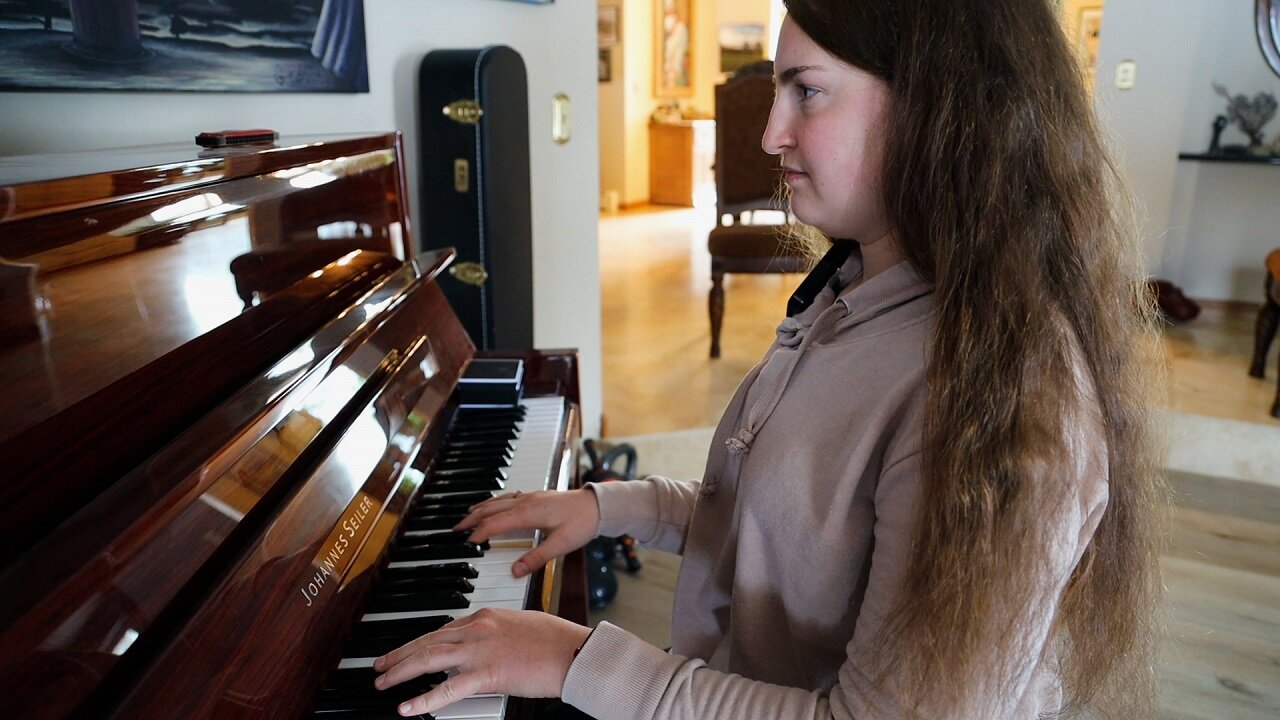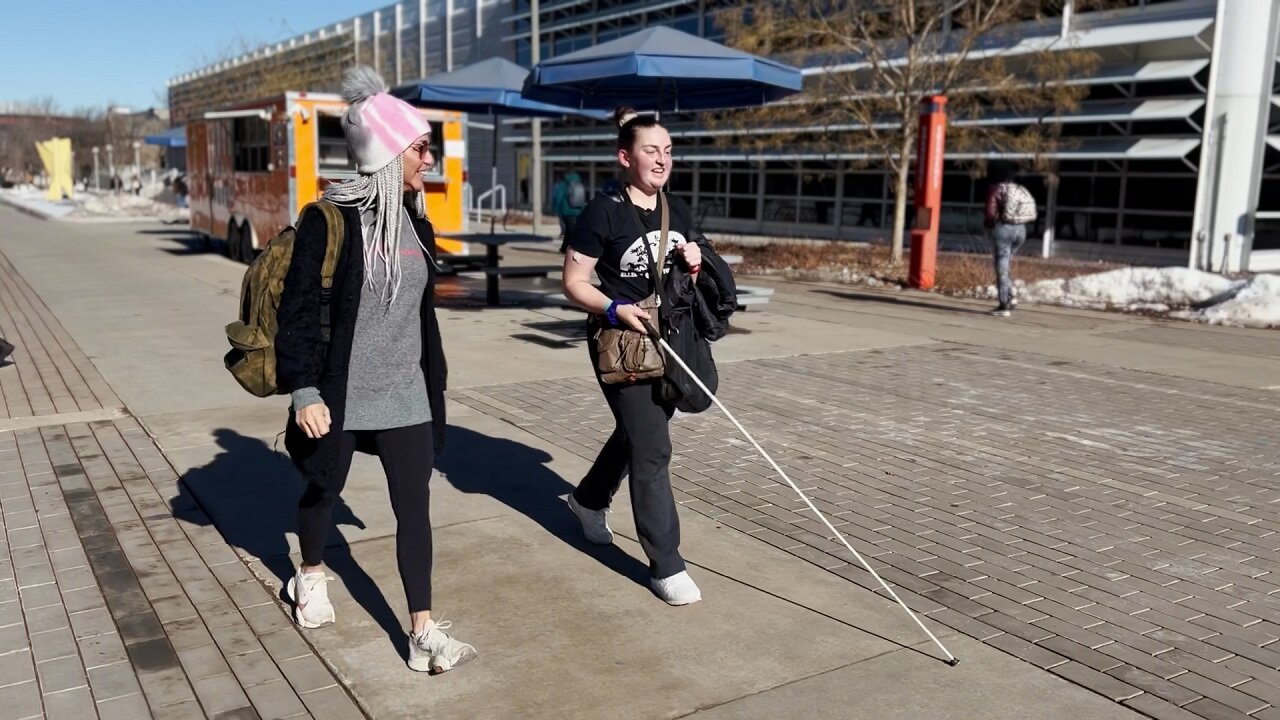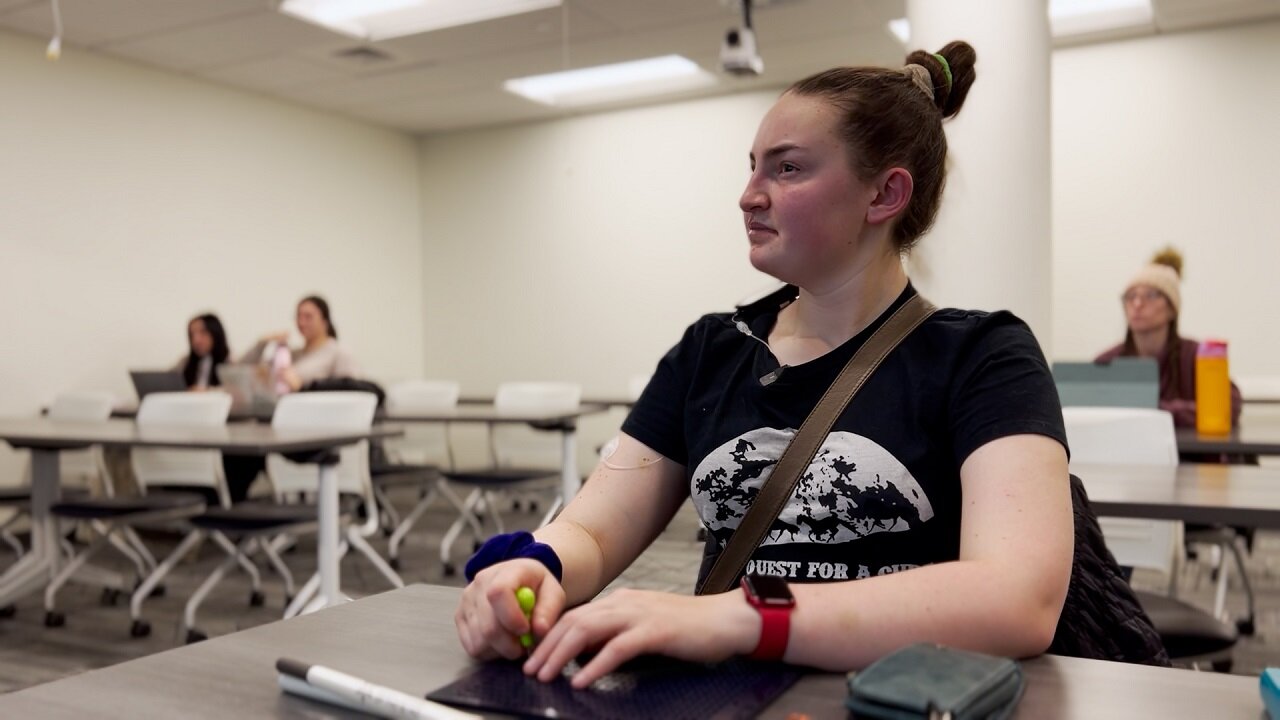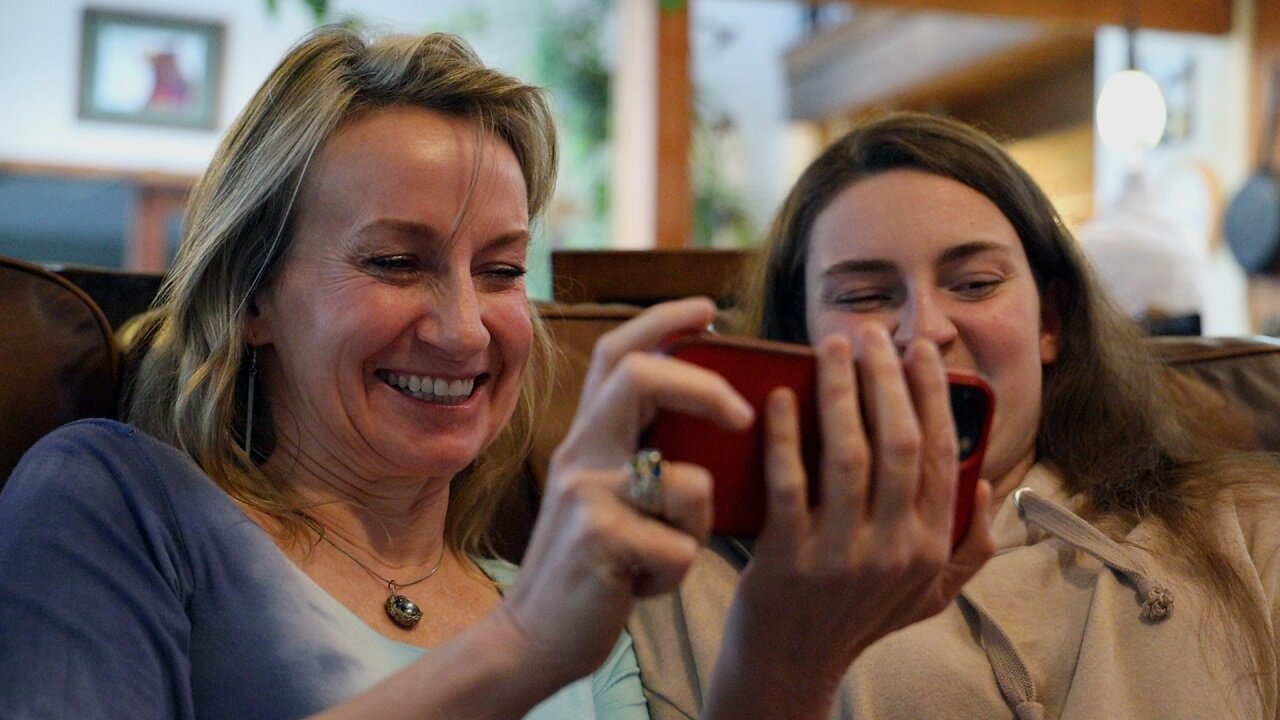'I want to live life': Facing a terminal illness, Ellie White raises awareness of Wolfram Syndrome

DENVER — How do you show up for life and all it can potentially offer when you’re only 21-years-old, knowing you may only have a few years left?
That’s a question Ellie White asks herself almost every day.
She was born with a rare neurodegenerative disease called Wolfram Syndrome, which causes diabetes, blindness, hearing loss, and eventually it affects the brain stem, resulting in respiratory failure at an early age. With no current cure, the life expectancy of someone with Wolfram Syndrome is typically between 25 and 40 years.
“Eventually my body will forget how to breathe, and I won’t be able to breathe, which makes this disorder a terminal disorder,” White said, adding that dying at a young age is difficult to contemplate, even for her. “I want to get stuff done. I want to live life."



In fact, she is — getting stuff done and living life — as best she can.
White finds joy by surrounding herself with family, friends and pets at her home in Centennial. She is also studying music therapy at Metropolitan State University of Denver. Over the last several years, she has performed with her dance group, The Silhouettes, on the television show "America’s Got Talent" and she traveled to Washington, D.C. for the inauguration of President Barack Obama.
These are things that are paramount for her, as much of her time is also spent traveling out of state to meet with various specialists for what can feel like constant medical testing.
“I just went to St. Louis and was there for five days. I had doctors appointments from seven in the morning until three in the afternoon. I did cognitive exams like memory and speech, taste tests, smell tests and blood work,” she added.
Wolfram Syndrome is considered an orphan disorder, which means it is extremely rare and there is not a lot of research for funding to help find a cure, and there is no treatment for it yet.
Ellie’s mother, Beth White, a molecular biologist at the University of Colorado Anschutz Medical Campus and the school of medicine’s infectious disease department, is trying to change that. And she feels her background in research can help.
“I feel like I see her dying in front of me,” she said. “We started the Ellie White Foundation for Rare Genetic Disorders because we realized we needed to raise money for research because Wolfram Syndrome is so rare that when Ellie was diagnosed with it, not only was she the only person alive in Colorado at the time who had it, but there was no research being done to find a cure."
Wolfram Syndrome typically starts with a diagnosis of childhood diabetes, then vision problems, which is what happened with Ellie. When she was three, doctors diagnosed her with diabetes. Four years later, during a routine eye exam, Ellie was found to be colorblind. After more tests, Ellie was diagnosed with Wolfram Syndrome.
“Unfortunately, it’s a terminal disorder. So, we’re working as quickly as we can to help find a cure and save her life,” explained Beth White, adding that her goals are raising awareness and money. “Ultimately finding a cure for Wolfram Syndrome is the most important thing in my life right now.”

That's when Beth started reaching out to as many researchers as possible, sending pictures of her daughter with pleas to do something.
“I wanted to reach out to these doctors and scientists and say, 'This cute little girl has this horrible terminal disorder that’s going to steal her entire life.' I wanted to see if I could find someone to work with her. And I discovered that Dr. Urano was doing similar research,” Beth recalled.
“People like Ellie keep me going and keep my enthusiasm high. Partnership and friendship is very important while working to find a cure and treatments for this disease,” said Urano.
Beth White describes her daughter as someone who is so brave that other people don’t realize that she’s suffering. “She has such a beautiful tendency to always look for the best in every moment of life, and the best in every person.”
Ellie describes herself as feeling empowered. “I’m hoping to make a difference. I’m not doing this to save my life. I’m doing this to help save other people’s lives.”
Dana Knowles is the managing editor at Rocky Mountain PBS. You can reach her at danaknowles@rmpbs.org.
Jeremy Moore is the interim co-content director at Rocky Mountain PBS. You can reach him at jeremymoore@rmpbs.org.